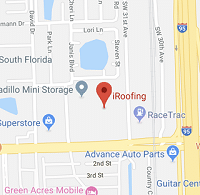Roofing is not just about laying down new shingles; it involves a comprehensive plan, skilled labor, and a clear agreement between the roofing business and the client. An integral part of this agreement is a well-drafted roofing contract. This article dives deep into what a roofing contract is, why it’s necessary, and the essential components that it should contain.
What is a roofing contract?
Why you need a roofing contract
Clarity & Understanding: A contract provides a clear understanding of what is expected from both the contractor and the client. As a result there will be less chance for a misunderstanding.
Legal Protection: In case of disputes, a well-drafted contract can serve as a point of reference and protect both parties legally. This is the case since all the details are specified on paper.
Professionalism: Having a contract shows your business’s professionalism and can instill confidence in your clients. Specially since people feel more comfortable when then can read and see the details.
Budget Management: Laid-out costs can prevent unexpected expenses and help in budgeting. The reason so is because you are able to see the details of a project that helps as a guide and reminder.

Standard components of a roofing contract document
Roofing business license number and insurance details
Roofing project's scope and size in squares
Materials and product inventory
Roofing labor required
Roofing project's timeline
Option for terminating the roofing project contract
Terms of payment for the roofing project
Contractor and customer details
Date and signature

Creating a foundation of trust
A roofing contract is more than just a piece of paper; it’s the foundation of trust between a roofing business and its client. By ensuring all essential components are covered in the contract, roofing businesses can not only protect themselves but also offer transparency and peace of mind to their clients. If you’re in the roofing business, always prioritize creating a detailed and comprehensive roofing contract for every project.
The reason we wanted to write this article is because if you are using our Roofing Software we help you by offering amazing tools like the Digital Roofing Contracts that will help you close sales on the spot.














